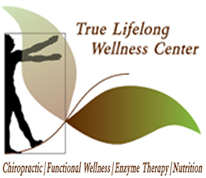713.974.0300
Probióticos
Probiotics (excerpt from The Ripple Effect of Toxicity by Lisa Helffrich, RD)
What are Probiotics?
The human microbiome, or probiotics, are the beneficial bacteria that are naturally present in your GI tract. Any bacteria that has been identified and isolated for use as probiotic supplements are very safe. While residing in the intestines they produce acid and antimicrobial substances that inhibit the growth of unfriendly bacteria. Probiotics also produce digestive enzymes lending further support to complete breakdown of food and nutrients. Therefore, they are a crucial part of your digestive and immune systems and have a profound impact on your health.
Do I need to take supplemental Probiotics?
Supplemental probiotics help replace or restore the bacteria that often become depleted by antibiotic use or imbalanced by poor diet and lifestyle choices. When the good bacteria are gone, the bad tend to take over and further complications can arise. When these unfriendly bacteria feed off of undigested food, the immediate result can be abdominal discomfort such as gas, bloating, cramping, diarrhea and/or constipation. When this condition continues for an extended period of time you are likely to damage the intestinal lining and Leaky gut (aka intestinal permeability) will occur. Leaky gut and its health implications are a topic for a different day……..
Which Probiotics are best?
There are many types and species of bacteria available as probiotic supplements. I prefer encapsulated or powdered products as opposed to those in food form such as yogurt or fermented juice because the colony forming units (cfu) are more controlled and guaranteed. I recommend various levels of cfu depending on your health needs. This may vary anywhere from 5-6 billion cfu to as much as 50-100 billion cfu per day. I also use refrigerated probiotics rather than those that have been coated for shelf stability. Probiotics in general are taken at bedtime, but may also be taken first thing in the morning or with meals depending on your needs. The specific species of bacteria I have the most experience with are Lactobacillus acidophilus, L. casei, L. plantarum, L. salivarus, Bacillus coagulans, Bifidobacterium bifidum and B. Longum. Others you may see are L. bulgaricus, L. rhamnosus, L. brevis, L. reuteri, B. lactis and B. infantis. You certainly do not need all of these in one product as a blend of 5-10 should be plenty.
What will I experience when taking Probiotics?
The major benefits I have seen as a result of probiotic use in my clinical practice are:
- Better digestion, resulting in less bloating and gas
- Stronger immune system with fewer infections including fewer urinary tract infections
- Regular bowel movements
- Healthier and clear skin


